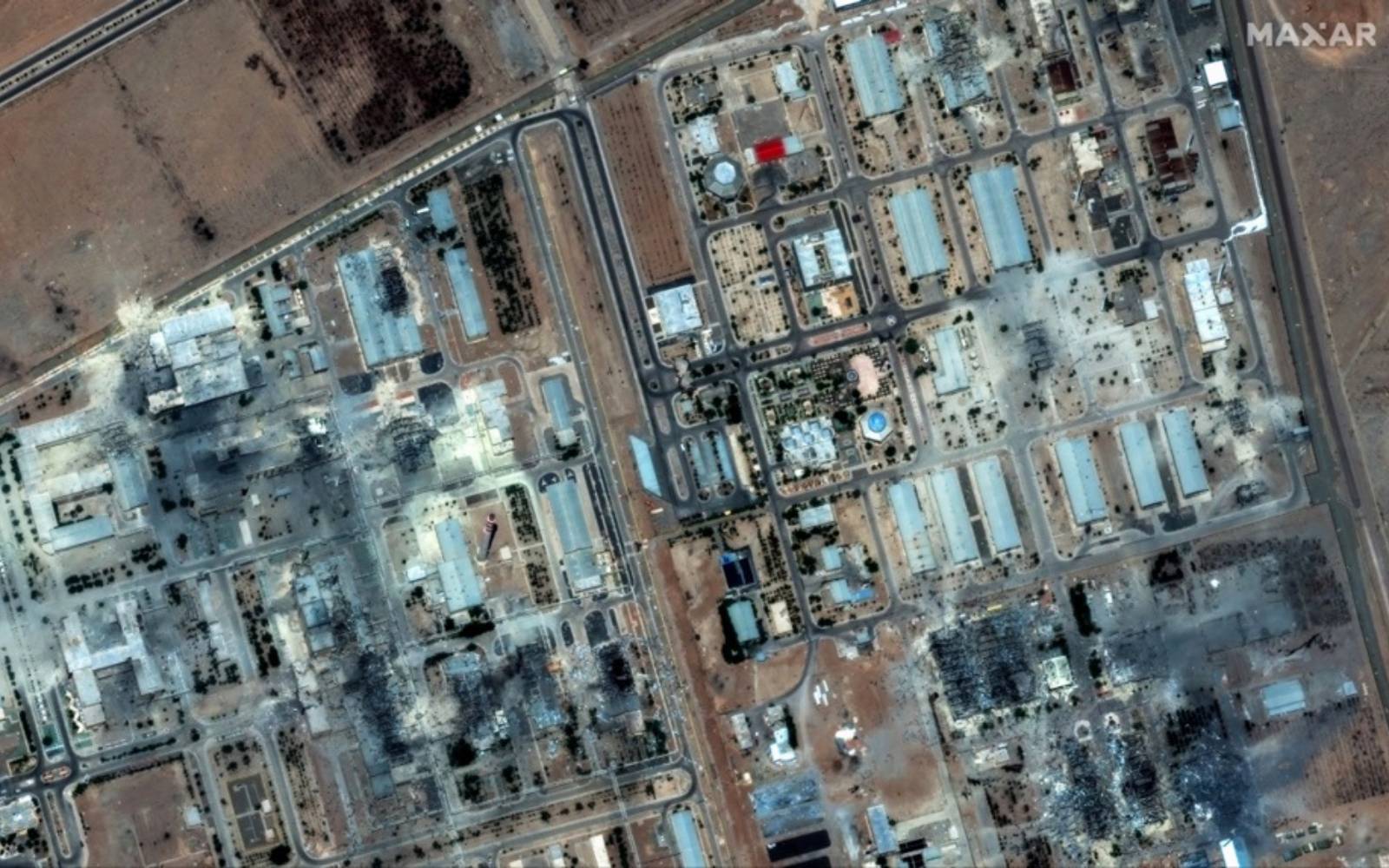
WASHINGTON: Iran warned about potential attacks on U.S. military installations in the Middle East following extensive airstrikes reported over the weekend. The United States claimed these strikes completely dismantled Iran’s nuclear program; however, certain government officials noted that the full scope of the destruction remained uncertain.
Global worry centered around the fear that the unrivaled assaults from the United States could exacerbate tensions in the unstable area following Israel’s recent bombing raids on Iran earlier this month.
An adviser to Iran’s Supreme Leader Ayatollah Ali Khamenei, Ali Akbar Velayati, stated that American military facilities utilized by US forces might face retaliatory attacks.
"Should any nation within this region or beyond allow U.S. forces to launch attacks against Iran from their territory, they would be regarded as legitimate targets for our military," he stated in a message conveyed through the official IRNA news agency.
America has struck at the very core of the Islamic world and will have to face irreversible repercussions.
President Donald Trump called for an end to the hostilities after ordering unexpected "bunker buster" attacks on a crucial underground uranium-enrichment facility in Fordow, as well as nuclear sites in Isfahan and Natanz.
"We achieved an incredible military victory yesterday by removing the 'bomb' from their grasp (they would have used it if they could!)" he stated on social media.
The defence secretary, Pete Hegseth, stated at a Pentagon press conference that Iran’s nuclear program has suffered significant damage, emphasizing that the operation did not aim to target Iranian forces or the civilian population.
Next to Hegseth, the highest-ranking U.S. military official, General Dan Caine, stated, "It would be far too premature for me to make any comments about whatever might or might not still remain."
Early evaluations of combat damage suggest that all three locations experienced extraordinarily extensive harm and devastation.
Tehran protests
As Iran’s authorities adopted a stubborn stance, President Masoud Pezeshkian similarly declared that the US would "face repercussions" for the assaults.
On Sunday, people assembled in downtown Tehran to demonstrate against strikes from the United States and Israel, holding banners aloft and shouting chants.
In the Semnan province located to the east of the capital city, Samireh—a 46-year-old homemaker—expressed her shock to AFP over the recent attacks. She mentioned that President Trump had indicated he would make his next decision within a fortnight.
"Although Semnan province is quite distant from the nuclear sites that were hit, I am deeply worried about the residents living close to those areas," she stated.
Shortly after the assault, Trump addressed the country, asserting complete success for the mission, with Vice President JD Vance subsequently chiming in during Sunday’s early hours.
"We believe that we significantly delayed Iran's nuclear program last night," Vance said to ABC.
However, he also indicated that Iran still possessed its highly enriched uranium.
We will be working over the next few weeks to make sure we address that fuel," he stated. "They no longer possess the capability to convert that stockpile of highly enriched uranium into weapons-grade material.
A different adviser of Khamenei, Ali Shamkhani, stated in a tweet on X that "should nuclear facilities be demolished, the game still goes on; enriched materials, homegrown expertise, and unwavering determination persist."
Rafael Grossi, who leads the International Atomic Energy Agency (IAEA), informed an urgent gathering of the UN Security Council that craters could be seen at the Fordo site; however, nobody has managed to evaluate the extent of the damage beneath the ground.
He mentioned that assaults on nuclear plants might lead to radiation leakage; however, the IAEA has not observed any rise in levels.
Israeli Prime Minister Benjamin Netanyahu prayed for Trump at the Western Wall in Jerusalem on Sunday, following his praise of the airstrikes as an action that "will alter history."
Retaliation risk
Israel’s military was likewise examining the outcome of the U.S. raid on the heavily fortified nuclear facility in Fordow, as a spokesperson stated that it remained unclear whether Iran had already taken out the enriched uranium from the location.
According to Caine, the primary US striking force consisted of seven B-2 Spirit bombers that traveled for 18 hours from the United States mainland to reach Iran.
Following the assault, which involved more than a dozen large " bunker-busting" bombs, Iran's military retaliated by targeting locations in Israel, such as Ben Gurion Airport close to Tel Aviv. At least 23 individuals were injured during these strikes.
At minimum, nine members of the Revolutionary Guard lost their lives Sunday due to Israeli assaults in central Iran, according to local reports, with hostilities between the adversaries persisting.
Israeli assaults on Iran have resulted in over 400 fatalities since their commencement, as reported by Iran’s Health Ministry. Meanwhile, Iran’s strikes on Israel have caused 24 deaths, according to official statistics.
The UAE, Qatar, and Oman — nations that were involved in facilitating negotiations between Iran and the U.S. over nuclear issues — condemned the American airstrikes and urged for calm. Meanwhile, United Nations Secretary-General Antonio Guterres cautioned about potential spirals of revenge following these actions.
Iran's Houthi allies in Yemen threatened again on Sunday to restart attacks in the Red Sea should the United States join the conflict, stating they would be prepared to strike American vessels.
